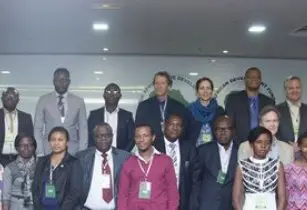The AfDB has organised a Structural Transformation of the African Agriculture and Rural Spaces (STAARS) workshop, to discuss recent developments in policy-relevant agricultural research and understand the policy implications for the transformation of Africa’s agriculture
Organised by the Macroeconomics Policy, Forecasting, and Research (ECMR) Department of the AfDB and Cornell University, the workshop brought together emerging young African researchers from Africa and around the world.
The STAARS project has benefited from the generous financial support provided by the Korean government through the Korea-Africa Economic Cooperation (KOAFEC) Trust Fund managed by the AfDB.
The workshop was a broad STAARS project that links the role of knowledge to the bank’s Feed Africa Strategy. Participants gained awareness of the role of agriculture in Africa’s development and structural transformation, and how research can shape agriculture policy in Africa.
In his remarks, Abebe Shimeles of the ECMR, presented the current status of Africa’s agricultural sector and highlighted the need for agricultural transformation to achieve food security and rural employment.
He also stressed the need to account for climate change issues, an increase in agricultural investments, the promotion of innovation and improve synergies between agricultural knowledge generation and development interventions and policies.
Christopher Barrett, a professor from Cornell University, stressed the importance of agriculture-led structural rural transformation to boost farm output growth. He highlighted how innovations in rural education and nutrition could lead to increased investment in health care and enhance lives and human capital in Africa.
The majority of presenters were young STAARS research fellows, who identified a number of constraints, relating mainly to climate change, technology, access to markets, affordable financing, investment, policy uncertainty and gender inequality, among others. The panelists also emphasised the urgent need to diversify farmers’ revenues, promote agricultural innovative financing and increase the adoption of productivity-enhancing technologies.





